What is the role of data in improving impact? And why is this a matter of equity? St. Louis social sector leaders addressed these questions in a panel discussion at STL DataFest 2024 titled Power in Numbers: How Data for Social Impact Cultivates Inclusive Growth on Friday, May 17. The panel was moderated by Simon Huang, Chief Technology Officer for […]
Category: News
Data for Social Impact Initiative Launches Data Equity Learning Cohort
To build connection and capacity for social sector leaders in equitable, collaborative data practice, Data for Social Impact (DSI), an initiative of the Social Policy Institute at Washington University in St. Louis, launched a Data Equity learning cohort in January 2024 in collaboration with Actionable Intelligence for Social Policy (AISP) of the University of Pennsylvania. […]
STEM training, apprenticeships increase work satisfaction (Links to an external site)
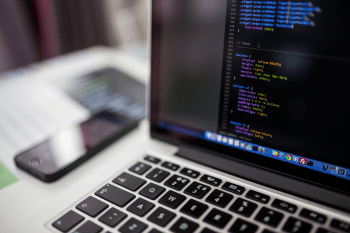
Participation in a science, technology, engineering and math (STEM) apprenticeship program increased job happiness, finds a new study from the Brown School at Washington University in St. Louis.
Participatory Research for Guaranteed Income: In Her Hands

By Katie Ragsdale, Katie Kristensen, Dr. Leah Hamilton, and Dr. Latrice Rollins The Social Policy Institute (SPI) seeks to shift to a participatory approach throughout its research and programming. Our working definition of a participatory approach draws on the theory and practice of Community-Based Participatory Research (CBPR). While CBPR is not always feasible or appropriate […]
Fostering Inclusive Policy Research: Embracing a Participatory Approach

By Katie Ragsdale & Katie Kristensen At the Social Policy Institute (SPI), we are deeply committed to fostering inclusive and impactful policy research. We recognize that the traditional top-down approach to policymaking often neglects the voices and experiences of communities and stakeholders most impacted by the problem at hand. Over the past two years, we […]
SPI sessions at the 2023 Association for Public Policy Analysis and Management (APPAM) Conference

Four Social Policy Institute researchers presented their papers and hosted discussions at the Association for Public Policy Analysis and Management (APPAM) conference from November 9-11, 2023. Below are the papers and discussions presented by the SPI team. Thursday, November 9, 2023 Friday, November 10, 2023 Saturday, November 11, 2023
Accepting submissions for special issue of Nutrients (Links to an external site)

SPI Associate Director Dan Ferris and faculty affiliate Sarah Moreland-Russell co-editing. Submission deadline May 15, 2024. The topic is “Nutrition Policy and Programs in Educational Settings: Equitable Approaches to Food Security.”
City launches Guaranteed Basic Income program for families (Links to an external site)
The St. Louis Guaranteed Basic Income Program has opened applications, and SPI will help evaluate its outcomes.
Israeli student visiting WashU wins $3,000 in thesis competition, donates it all to IDF (Links to an external site)
Avnor is a Ph.D. clinical neuropsychology student at the University of Haifa and she is associated with the Social Policy Institute at Washington University in St. Louis.
City of St. Louis, Offices of the Treasurer and Mayor Announce Launch of the STL Guaranteed Basic Income (STL GBI) Pilot, Outline Timeline and Eligibility (Links to an external site)
Washington University in St. Louis’ Social Policy Institute and the Brown School Evaluation Center are partnering with the City for data analysis and evaluation of the program.
Mastercard Impact Fund renews grant to Social Policy Institute
Latest $1.5M grant will extend ongoing work to foster inclusive economic growth in St. Louis The Mastercard Impact Fund, with support from the Mastercard Center for Inclusive Growth —a founding partner of the Social Policy Institute (SPI) at Washington University in St. Louis — will continue its support for SPI with a second round of […]
Faculty receive equitable growth grants (Links to an external site)

Stephen Roll, associate director of research at SPI, received an equitable growth grant from the Washington Center for Equitable Growth
A Safe Place’: Rural HIV Patients and Providers Fight Stigma, Isolation Through Connection (Links to an external site)

Phil Marotta was quoted regarding his work on HIV in rural areas, and the impact stigma has on important health decisions.
Social Policy Institute to study impact of short-term credentials on advancing equity and meeting local labor market demands
Contact: Jason Jabbari, Associate Director of Community Partnerships, Social Policy Institutejabbari.jason@wustl.edu. ST. LOUIS, Missouri (August 28, 2023) – The Social Policy Institute (SPI) at Washington University in St. Louis has received a two-year, $475,000 grant from the Lumina Foundation. These funds will support a research project aiming to understand the impact of short-term credentials on […]
JPMorgan Chase awards $1.6 million grant to address employment vulnerability of low-wage frontline workers
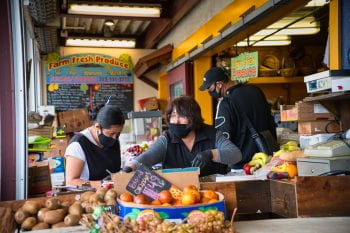
JPMorgan Chase has awarded a $1.6 million grant to the Social Policy Institute (SPI) at Washington University in St. Louis in aid of its Workforce Economic Inclusion and Mobility (WEIM) Project to address the employment vulnerability of low-wage frontline and essential workers. Through this work, SPI will build a better understanding of the public policy […]
What to Do With Your Tax Refund? Save for Emergencies. (Links to an external site)

Stephen Roll, associate director of research, did an interview with the New York Times on how to best use your tax refund
Free Online Course Focuses on Cultivating Collaborative and Equitable Data Practices

Data for Social Impact, an initiative of the Social Policy Institute at Washington University in St. Louis, has launched a free online course for social sector professionals. While many courses develop technical data skills, this course—designed with, by, and for social sector leaders—supports organizations in cultivating equitable, collaborative data practices. Each module includes worksheets, resource […]
As Supreme Court Considers Student Loan Forgiveness, States May Expand Their Programs (Links to an external site)
More than one-third of St. Louis K-12 students change schools midyear, new report shows (Links to an external site)
St. Louis school mobility was investigated by St. Louis School Research-Practice Collaborative at Washington University, showing a high percentage of student’s changing schools
How does the housing market affect UK productivity? (Links to an external site)
Michal Grinstein-Weiss, director, is listed as an expert on the housing market, and the effects it can have on productivity.
Entrepreneurs face headwinds from investment sector (Links to an external site)
Launch of a new Social Policy Research Scholars program with the first cohort of doctoral students
The Social Policy Institute is proud to announce the launch of our Social Policy Research Scholars Program. With support from the JPMorgan Chase Foundation, the program supports doctoral students from historically marginalized populations underrepresented in academia in their research endeavors to achieve an inclusive society that is socially, racially and economically just. The scholars program […]
President Biden calls for restoring child tax credit (Links to an external site)
Following President Biden’s call to restore the Child Tax Credit, ABC27 cited SPI research demonstrating the positive effects of the policy.
Washington University Study Examines Role of Tighter School Security on Academic Performance (Links to an external site)
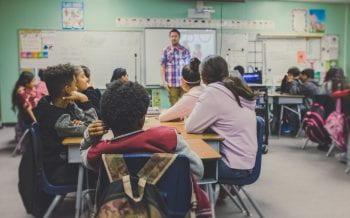
Jason Jabbari, associate director of community partnerships, spoke about findings from a report he co-authored on the correlation between school security and academic performance.
Bank of America awards Operation Food Search $25,000 grant to support its Fresh RX: Nourishing Healthy Starts program (Links to an external site)

$25,000 was awarded to Operation Food Search in order to broaden the Fresh RX program
Bank of America takes fresh approach to fight food insecurity (Links to an external site)

Bank of America has awarded a grant to Operation Food Search, to expand the Fresh RX program.
Artificial Intelligence for Social Impact: 5 Guideposts from Our CEO (Links to an external site)
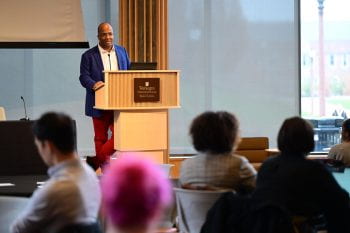
Benefits Data Trust highlighted some key points their CEO, Trooper Sanders, made when he gave the Keynote Address at the DSSI Summit.
Data for Social Impact Summit [Five Key Takeaways]
In November 2022, the Social Policy Institute at Washington University in St. Louis hosted Data is for Everyone: A Data for Social Impact Summit. The summit’s goal was to build connection and capacity among social sector organizations to cultivate equitable, community-centered data practices. The event featured 21 local and national speakers across five panels. Each […]
Submission to the Office of the United Nations High Commissioner for Human Rights on the Rights of the Child and Social Protection (Links to an external site)
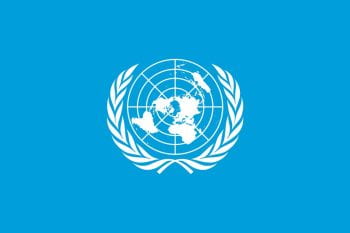
An SPI research report on the effects of the 2021 Expanded Child Tax Credit was cited in a submission by Human Rights Watch to the United Nations.
Op-ed: We have the tools to end childhood poverty. Why don’t we?

One year after the last monthly Child Tax Credit payment, Congress has failed to gather enough support to extend this program, which our research suggests provided a critical safety net to American families. A key part of the American Rescue Plan Act, the Child Tax Credit provided $3,600 for each child under six and $3,000 for each child […]
Habitat for Humanity International awards $350,000 to investigate impact of housing on wealth building

Yung Chun, research assistant professor of the Social Policy Institute and Brown School at Washington University in St. Louis, received a $350,000 research award from Habitat for Humanity International to evaluate homeownership programs implemented by local Habitat affiliates and investigate the impact on wealth building for households with low incomes. Through this project, the Social […]
Jabbari to study social mobility, equity in programs (Links to an external site)
Jason Jabbari, associate director of community partnerships, has been awarded a two-year grant to study social mobility and equity in programs.
The Association for Financial Counseling and Planning Education® (AFCPE®) Announced 2022 Award Recipients Impacting the Personal Finance Field (Links to an external site)
AFCPE announced their award winners for 2022, and SPI research won Outstanding Research Journal Article of the Year.
Social mobility as a priority will open doors for Israeli children – opinion (Links to an external site)
Social Policy Institute research was cited in this opinion piece on social mobility and its impact on children in Israel.
Male Caregivers and Engagement in a Family Strengthening Program for Child Disruptive Behavior Disorders
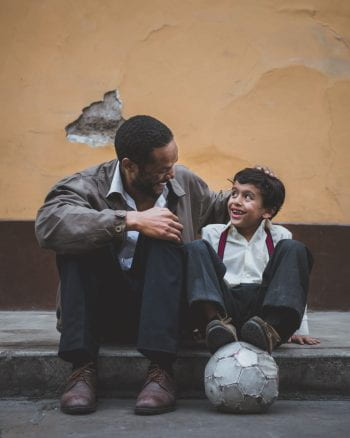
Abstract Awareness and interest in involving male caregivers in child mental health treatment has grown, especially for youth with disruptive behavior disorders like oppositional defiant disorder (ODD). The purpose of this study was to examine the relationship between male caregiver involvement and treatment engagement for child ODD. Children (n = 122) ages 7–11 and their caregivers participated […]
5 Ways Public Health Keeps Communities Healthy (Links to an external site)
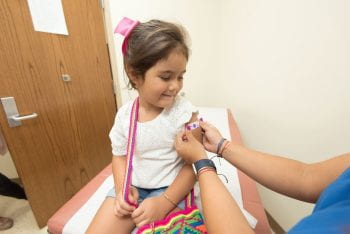
Tyler Frank, doctoral research assistant, published this blog on GoodRX Health discussing how public health helps promote social justice, equity, and collective action, and how it keeps communities safe.
Improving perinatal outcomes for mother and child through Fresh Rx: Nourishing Health Starts
Dan Ferris, associate director of education and training for SPI, along with co-authors, recently published, “Does a food insecurity intervention improve perinatal outcomes for mother and child? A randomized control study protocol of the Fresh Rx: Nourishing Healthy Starts program,” in the Journal of Public Health Research.
Tighter school security leads to lower test scores, study finds (Links to an external site)
As schools around the country have ramped up security efforts in response to recent school shootings, a new study from the Brown School at Washington University in St. Louis suggests that increased surveillance is having a detrimental impact on academic performance.
Lessons from a global team
I truly believe we can accomplish more by stepping outside of our own culture and seek to understand and learn from each other. This is what makes SPI’s global approach to its work so impactful. I look forward to hosting WashU colleagues in Israel next time.
Should we cancel student debt or make loan repayment affordable? Lessons from the U.S. and U.K. (Links to an external site)
Mastercard partners with WashU to promote inclusive growth (Links to an external site)
Improving the financial strength of black small business owners (Links to an external site)
SPI research to be presented at Association for Public Policy Analysis and Management conference

Social Policy Institute research will be presented in seven different panels during the APPAM conference Nov. 17 to Nov. 18, 2022. Below are the papers and discussions that will be presented by the SPI team, including staff and faculty affiliates.
How do health care costs impact household finances and access to care?
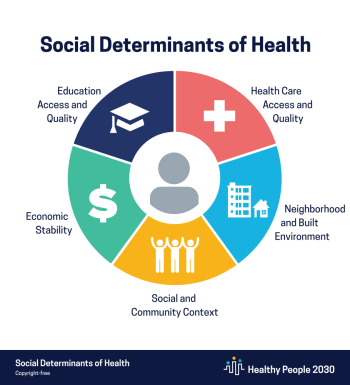
Prioritizing affordability of care will be the first step to ensuring that a healthy life is feasible for everyone regardless of finances.
Household Financial Security: What can we learn from research in the U.K.?

A Trans-Atlantic Policy Forum could bring together academic researchers,
policy makers, advocates, and corporate leaders in the U.S. and U.K. to develop
insights to fuel changes in public policies and corporate behavior to promote the
financial security of low- and moderate-income (LMI) individuals and families.
40% of student borrowers lack a four-year degree (Links to an external site)
Retirement Plans Poised to Benefit From Student Loan Forgiveness (Links to an external site)
The Wall Street Journal shares how money received from the student loan forgiveness program will help people achieve other financial goals.
Apply to become a 2022-2023 Graduate Policy Scholar!
Applications for the Graduate Policy Scholar program are now open to all graduate students at Washington University in St. Louis! The Graduate Policy Scholar program provides students from all fields of study with impactful opportunities and training in policy. Offered by the Social Policy Institute and the Clark-Fox Policy Institute, the yearlong program provides students […]
Humanizing artificial, expanding intelligence: Putting AI in context with the social sciences and the social sector
The relationships between artificial intelligence (AI), the social sciences, and the social sector have incredible potential. It is easy to imagine a disconnect between something that is, in name, artificial, and the study and support of human relationships. How are advancements in data science, such as AI, furthering the missions and shared objectives of non-profits, […]
Financial Hardship Increases During Ramadan in Israel
Oren Heller, Postdoctoral Research Associate, and Daniel Yeshua, Program Manager Financial hardship among the Muslim Arab community in Israel increases during Ramadan, a survey from the Social Policy Institute at Washington University in St. Louis finds. This study, the first to examine the economic impact of Ramadan on the Muslim Arab population, can provide insight […]